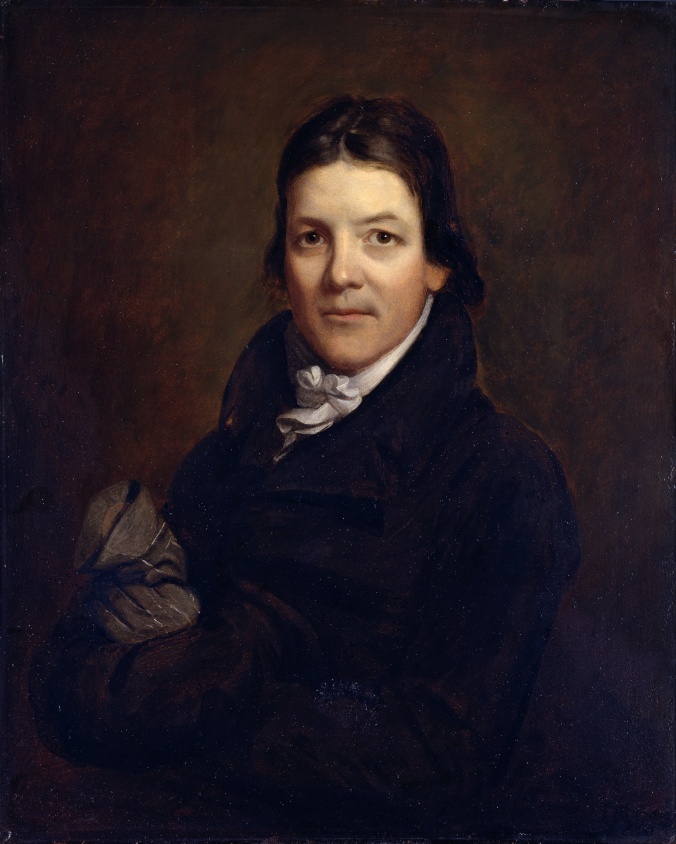In my last post, I had mentioned the career of the chief systematizer of Jeffersonian Democracy, John Taylor of Caroline. I had briefly summarized his commitment to the idea of the United States as an agrarian farmer’s republic and how this blended well with his positive stance on states rights.
Southern support of States Rights and a strict interpretation of the Constitution is rooted in a conviction that to protect the Southern way of life, limitations must be placed on the Federal government. In their eyes an “artificial capitalist sect,” following Alexander Hamilton’s financial modernization plan, had set their sights on disturbing the delicate balance between state and federal governments in order to favor their own economic interests.
Joining John Taylor in his struggle was the celebrated Virginian congressman and orator, John Randolph of Roanoke.

To call John Randolph eccentric would be a massive understatement. John strongly identified himself as an “old school” Southern plantation aristocrat. He often rode around the Virginian countryside in a venerable English stagecoach drawn by six horses. And like every Southern gentleman, John Randolph was quick to defend his honor in duels when he felt his dignity had been violated. He actually undertook a duel against the venerable Kentucky statesman Henry Clay – thankfully both survived the ordeal. John also assaulted another congressman, Willis Alston, in what is described by historians as a pitched battle of thrown tableware and bloody canes.
John Randolph’s aristocratic behavior also extended into his politics which can be summarized as – “I am an Aristocrat. I love Liberty. I hate Equality.” By the word Equality, Randolph is showing a disdain for democracy. One of his speeches further elaborated as to the reason why:
That all men are born free and equal, I can never assent to, for the best of all reasons, for it is not true. If there is an animal on earth to which equality does not apply-that is not born free-it is man; he is born in a state of the most abject want and a state of perfect helplessness and ignorance.
Or to put it plainly – the conditions of each man is unequal and government should be left in the hands of better men. In his view, the traditional patriarchal society of Virginia led by its elites was conducive to holding society together and creating stability. The major threat to this stability was, in his view, the Federal Government and those who sought to expand its powers.
It is for this reason that John Randolph became a supporter of another long standing American opinion invoked by figures such as Calvin Coolidge – the Government that does nothing is the best kind of government that can exist. However, like John Taylor, he acknowledged that there were forces that promoted an activist government for both financial and ideological gain.
This led John Randolph to form a faction within Jefferson’s Democratic-Republican Party, known as the Old Republicans, who sought to stick to the “Principles of ’98.” These principles refer to the Kentucky and Virginian Resolutions of 1798, written by James Madison and Thomas Jefferson in protests against the Alien and Sedition Acts.
Without going into too much detail about the specifics of the situation, this “stand-off” articulated two viewpoints:
- Alexander Hamilton/The Federalists = Judicial Review by the Supreme Court determines whether the actions of Congress can be deemed Unconstitutional.
- Jefferson + Madison/The Democratic-Republicans = Individual States can determines the constitutionality of the actions of the central government and can refuse to enforce laws (ie: nullification).
When asked to summarize the principles of Old Republicans faction, Randolph had this to say:
“love of peace, hatred of offensive war, jealousy of the state governments toward the general government; a dread of standing armies; a loathing of public debts, taxes, and excises; tenderness for the liberty of the citizen; jealousy, Argus-eyed jealousy of the patronage of the President.”
Randolph’s support of aristocratic culture and old-style republicanism led him into rather interesting political decisions:
- Although against Slavery, Randolph deemed it a necessity for the survival of Virginia. The ironic thing about this, was that John Randolph was a founder of the American Colonization Society, which transported freed slaves back to Africa to form the nation we now know as Liberia. He even freed his own slaves at the time of his death.
- Although incredibly popular with the common voter due to his oratorical skills, he opposed the abolition of primogeniture and entail in support of the Virginian aristocracy. Or to put it in his own words: “The old families of Virginia will form connections with low people, and sink into the mass of overseers’ sons and daughters”
- Finally, even though he was an ardent supporter of President Jefferson’s deal to buy the Louisiana Territories from the French, he came to the conclusion that he had violated his own principles. It was unclear if President Jefferson had the power under the Constitution to make that purchase. Randolph also feared that an expanding nation would be unable to sustain a common loyalty and interest.